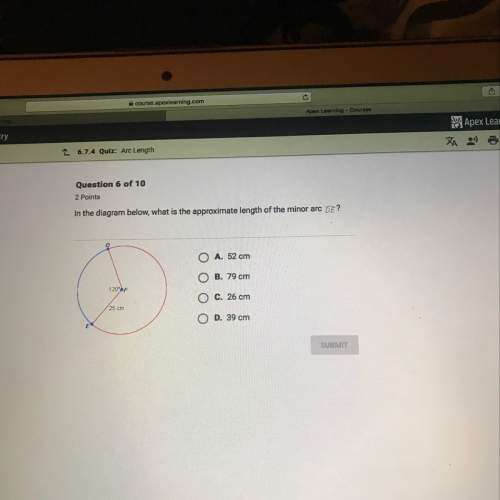
Mathematics, 19.08.2021 03:30 khenalilovespandas
When interest is compounded continuously, the amount of money increases at a rate proportional to the amount S present at time t, that is, dS/dt = rS, where r is the annual rate of interest.
a. Find the amount of money accrued at the end of 7 years when $6000 is deposited in a savings account drawing 5 and 3/4% annual interest compounded continuously?
b. In how many years will the initial sum deposited have doubled? (Round your answer to the nearest year.)
c. Use a calculator to compare the amount obtained in part (a) with the amount S=6000 (1+1/4(0.0575))^7 that is accrued when interest is compounded quarterly.

Answers: 1


Another question on Mathematics

Mathematics, 21.06.2019 14:00
Ataxi cab charges $1.75 for the flat fee and $0.25 for each time. write an in equality to determine how many miles eddie can travel if he has $15 to spend.
Answers: 1

Mathematics, 21.06.2019 14:40
What signals you that factoring by grouping is the best method to use when factoring a problem?
Answers: 2

Mathematics, 21.06.2019 17:00
Marlow is comparing the prices of two trucks rental compaines company a charges $3 per hour and an addtional $75 as serivce charges company b charges $2 per hour and an additional $85 as serivce charges
Answers: 1

Mathematics, 21.06.2019 17:30
Asphere has a diameter of 10 in. what is the volume of the sphere?
Answers: 1
You know the right answer?
When interest is compounded continuously, the amount of money increases at a rate proportional to th...
Questions




Mathematics, 18.07.2019 06:30


Computers and Technology, 18.07.2019 06:30

Biology, 18.07.2019 06:30

Biology, 18.07.2019 06:30

History, 18.07.2019 06:30


Chemistry, 18.07.2019 06:30








Social Studies, 18.07.2019 06:30

Biology, 18.07.2019 06:30




